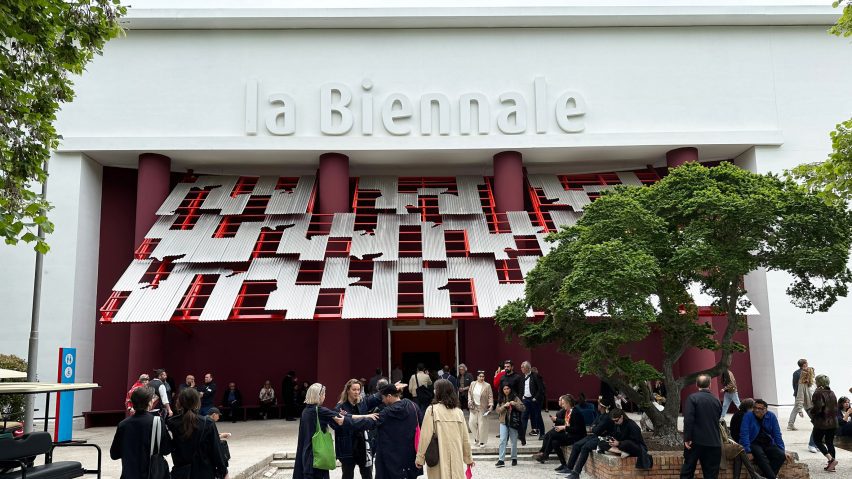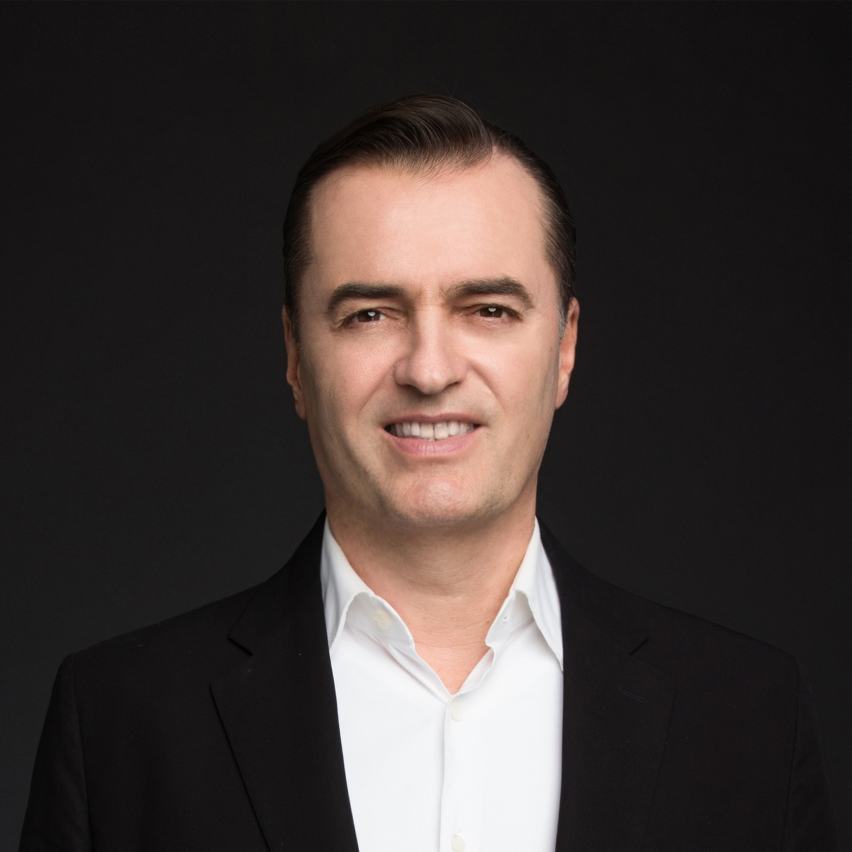
Venice Architecture Biennale "does not show any architecture" says Patrik Schumacher
The lack of architecture at the Venice Architecture Biennale means that it is at risk of losing its position as the world's leading architecture event, says Zaha Hadid Architects principal Patrik Schumacher.
Schumacher labeled the event an "anti-architectural biennale" where the national pavilions "refuse to show the work of their architects", in a post on Facebook titled Venice Biennale Blues.
National pavilions refuse to show "any architecture whatsoever"
"The Venice 'Architecture' Biennale is mislabelled and should stop laying claim to the title of architecture," he wrote. "This title is just generating confusion and disappointment with respect to an event that does not show any architecture."
"Assuming Venice to be not only the most important item on our global architectural itinerary, but also representative of our discourse in general: What we are witnessing here is the discursive self-annihilation of the discipline," he continued.
The Zaha Hadid Architects principal criticised numerous European national pavilions including the British Pavilion, Dancing Before the Moon, which was given a special mention for National Participation by the biennale organisers.
He drew particular attention to the German pavilion, which he described as full of "piles of construction material".

"Most national pavilions, including all major European nations like Germany, France, Spain, UK, Belgium, Holland, Norway/Sweden, Finland, but also Japan, Canada, Australia and the USA, refuse to show the work of their architects, or any architecture whatsoever."
"What does this tell us?" he asked. "That there is no noteworthy architecture in Germany, France etc. etc .etc. or anywhere in the Western world? Is the design and construction of buildings only an occasion for bad conscience? Is this bad conscience the motive force behind the refusal (by now pervasive for more than a decade) to display any contemporary architecture whatsoever?"
"Architectural works are nowhere to be seen in 99 per cent of the exhibition space"
Schumacher continued by questioning what the curators expect the "unsuspecting general public" visiting the biennale to take away from the event. He argued that the exhibition should include more representations of buildings.
"Is my conception of architecture as discipline too narrow if I expect to see architectural design in an architecture biennale?" he asked. "I don't think so. Whatever social, political or moral issues we want to address, the way to show their relevance to architecture is via projects that claim to respond to these issues," he continued.
"No talk about 'architecture as expanded field' can convince me that we are still in an architectural event when the scene is dominated by documentaries, critical art practice and symbolic installations while architectural works are nowhere to be seen in 99 per cent of the exhibition space."
According to the architect, the only places where architecture was displayed was in the Chinese pavilion where he saw an "impressive suite of projects" by studios including Neri&Hu and Standard Architecture, and in David Adjaye's exhibits, which he described as a "fantastic exception".
Position as world's leading architecture event "is up for grabs"
Schumacher believes that the lack of architecture on show at the event means that the Venice Architecture Biennale's position as the world's most significant architecture event is under threat.
"The event is now gradually consuming and drawing down its built up reputation," he wrote. "It's consuming its social capital. If the event keeps diluting, even actively avoiding or displacing its mission as architectural event, it becomes vulnerable to new possible contenders if they are delivering what is being expected by the silent majority of architects and I presume by the general public," he continued.
"There is nothing in sight here but the vital function the Venice Architecture Biennale used to fulfil for our discipline for many years (and that needs to be fulfilled) is up for grabs."
At previous editions of the Venice Architecture Biennale, Schumacher has been critical of the curators and national pavilion content. In 2018 he said that "pavilion after pavilion was devoid of architecture" and that "architects must fight back to reclaim the Venice Biennale from the arrogant and self-indulgent curators."
This year's biennale was curated by Ghanaian-Scottish architect Lesley Lokko who was committed to putting Africa at the heart of the event. In an exclusive interview with Dezeen, she explained that Africa was a "powerful place from which to examine the issues that will dominate the next century".
The Venice Architecture Biennale takes place from 20 May to 26 November 2023. See Dezeen Events Guide for all the latest information you need to know to attend the event, as well as a list of other architecture and design events taking place around the world.